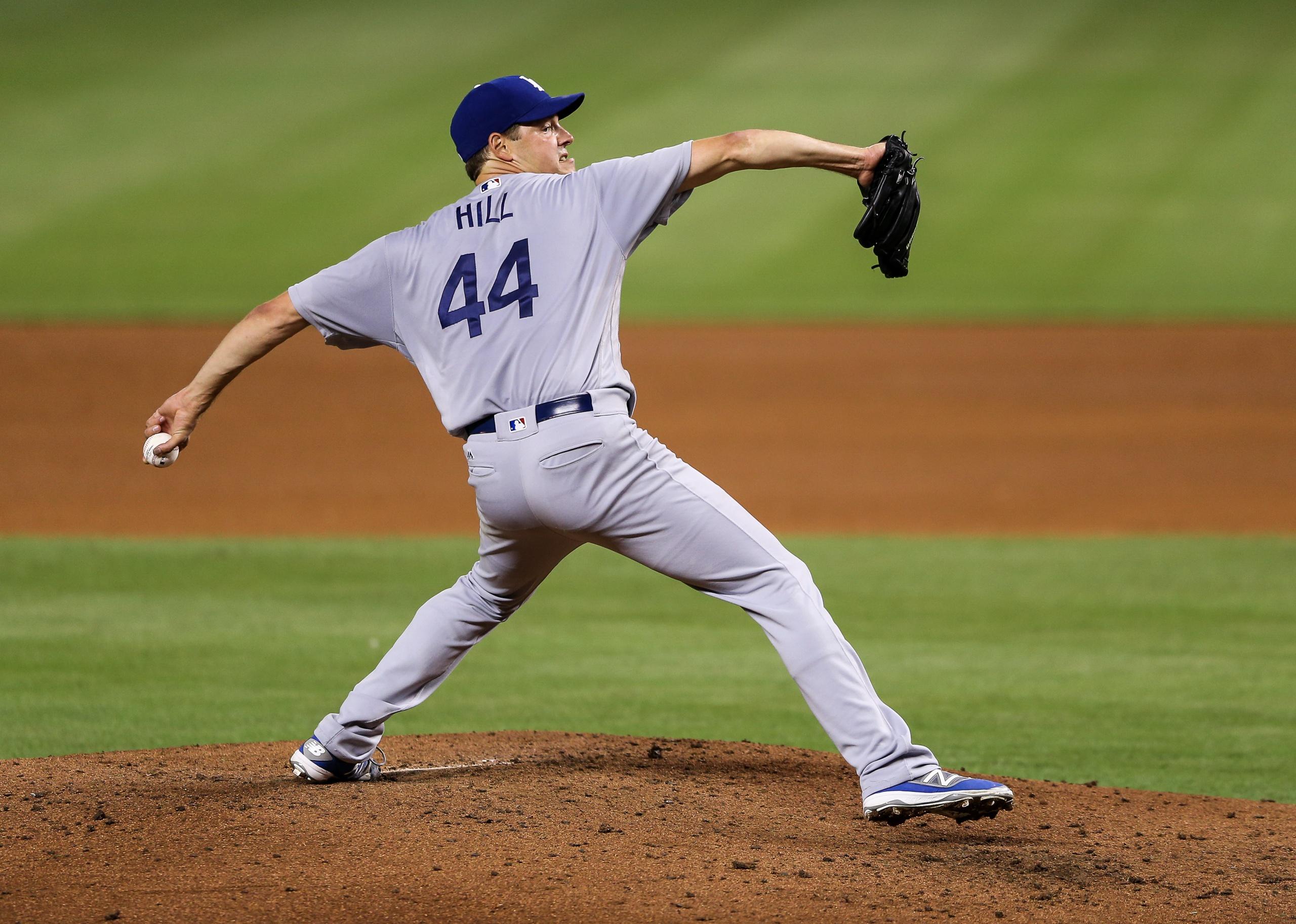
Every incomplete perfect game in baseball history
When the Los Angeles Dodgers pulled Clayton Kershaw after seven perfect innings on April 13, 2022, the bid for baseball's 24th perfect game ended. While the Dodgers' decision to yank Kershaw generated plenty of hoopla, it turns out that pulling a perfect pitcher is far from an isolated incident.
In fact, since the major leagues' last perfect game in 2012, six pitchers have been pulled while deep into a perfecto attempt, according to a Stacker analysis. Three such occurrences have taken place in the past two seasons alone, an uptick potentially buoyed by baseball's increased reliance on pitch counts and load management. In total, 11 pitchers since 1901 have tossed at least five perfect innings, but weren't credited with a perfect game because they were either pulled or the game went final before the ninth inning.
To uncover the 11 who threw incomplete perfect games, Stacker leaned on Stathead's pitcher game finder and limited the data set to pitchers who had gone at least five innings. Note that because of limitations with Stathead's search function, three unqualified games included in the above-linked data set were manually removed.
The five-inning minimum was chosen because, after five innings, the pitcher can get credit for a win or loss, and the game's result can be counted if the umpire calls the game early. This minimum also generates a data set of games similar to Kershaw's—pitchers who made a deep run at perfection, but ultimately fell short of a complete perfect game.
Additionally, this research covered both pitchers who were pulled from a game and those who finished a shortened game. Major League Baseball considered the latter group to have qualified for an official perfect game until the committee on statistical accuracy tightened the definition of a no-hitter in 1991 and struck 50 no-no's—including four previously perfect games—from the record books. Those four games are included on this list because they fit Stacker's definition of an incomplete perfect game.
Stacker also looked for those who pitched past nine innings but didn't complete the game. However, any such occurrences were not found besides situations like Harvey Haddix's 12 perfect innings or Pedro Martinez's nine perfect innings, which both ended up imperfect after extra-inning blemishes.
The 11 pitchers are listed in chronological order. Keep reading to find out which players made this list.
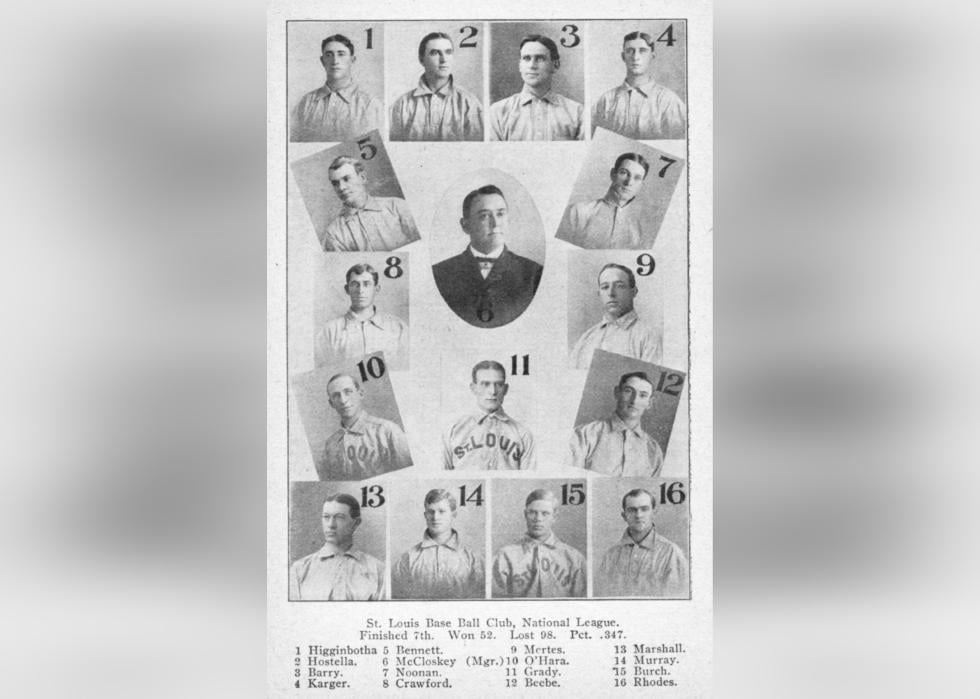
Ed Karger, St. Louis Cardinals
- Date: Aug. 11, 1907
- Game result: St. Louis Cardinals 4, Boston Doves 0 (7 innings)
- Innings pitched: 7
- Strikeouts: 2
- Reason for incomplete game: Planned 7-inning game
Ed Karger overcame the Boston Doves—the ball club that later became the Atlanta Braves—and the St. Louis summer heat to become the first pitcher to record an incomplete perfect game. The temperature in the city reached 98 F on Aug. 11, making it St. Louis’ hottest day in six years, according to the St. Louis Dispatch.
Despite the muggy weather, Karger pitched seven innings of perfect ball, and journalists from St. Louis and Boston both wrote that he was strong enough to go further. The left-hander’s pitching was especially hot that August—just three days prior, Karger held the Doves to two hits in a nine-inning complete game.
It’s noteworthy that this game was the only one counted for this list that was planned from the start to be shorter than nine innings. The decision to shorten the game—which was a nightcap of a doubleheader—was so that both teams could catch a train from St. Louis to Boston, where they’d play a four-game series.
Karger never again reached the heights he achieved during that sweltering St. Louis summer. His two-hitter and perfect game were his best career performances hit-wise, and he would later bounce out of the major leagues in 1911.
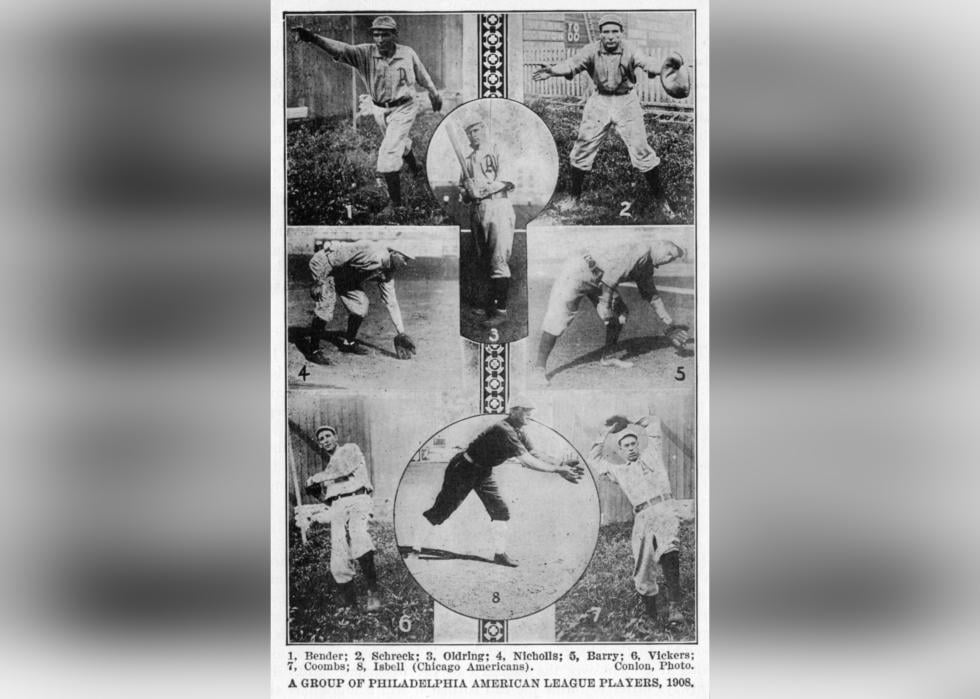
Rube Vickers, Philadelphia Athletics
- Date: Oct. 5, 1907
- Game result: Philadelphia Athletics 4, Washington Senators 0 (5 innings)
- Innings pitched: 5
- Strikeouts: 3
- Reason for incomplete game: Called due to darkness
Not even two months after Karger’s game and on the final day of the 1907 season, Rube Vickers achieved the second incomplete perfect game. Like Karger’s game, this one was a nightcap, but it was called on account of darkness, and not prior mutual agreement.
Vickers pitched a total of 17 innings against the Washington Senators that day. In game one of the doubleheader, Vickers came on in relief and tossed the final 12 innings of the Athletics’ 4-2, 15-inning victory. Vickers allowed just one run on seven hits. In game two, Vickers was flawless through five. The Washington Times called Vickers “the real star” and wrote that he was “all to the good.”
Vickers faded into relative obscurity after his short perfect game. He lasted two more seasons in the big leagues and never again came close to perfection.
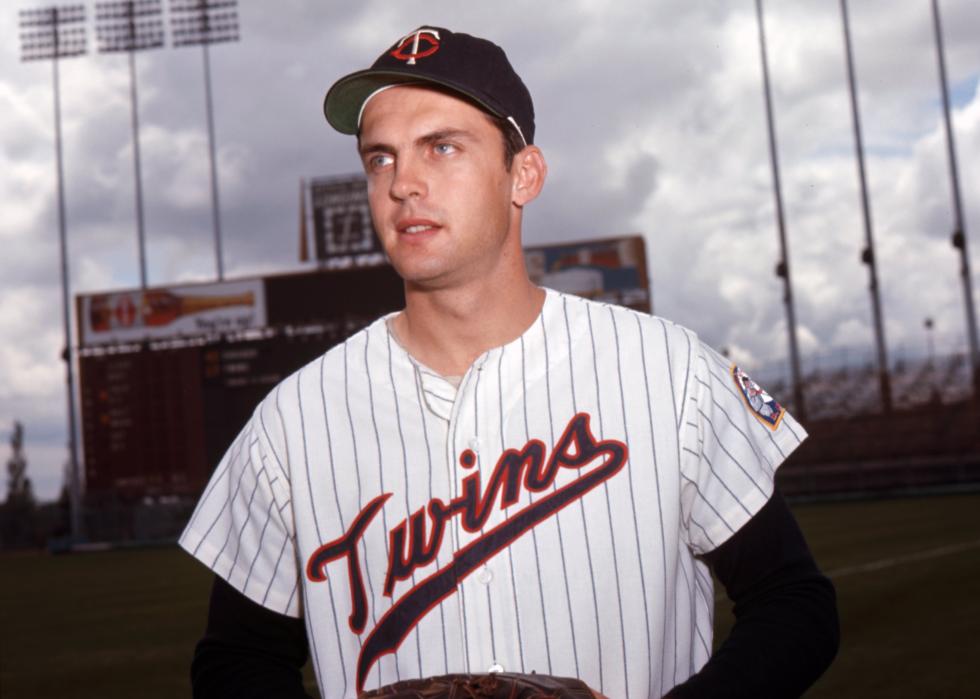
Dean Chance, Minnesota Twins
- Date: Aug. 6, 1967
- Game result: Minnesota Twins 2, Boston Red Sox 0 (5 innings)
- Innings pitched: 5
- Strikeouts: 4
- Reason for incomplete game: Called due to rain
Dean Chance is one of the more distinguished players on this list. In 1964, he became the youngest winner of the Cy Young Award. But his bid for perfection three years later was cut short, thanks to a rainy day in Minneapolis.
The game experienced a 25-minute rain delay in the fourth inning and another, 57-minute delay after the top of the fifth. After that second delay, the weather let up again–but the field was in no condition for continued play—sealing the door on Chance’s perfect game.
Chance himself wasn’t all too impressed with the result. “It was a cheapie,” the Minneapolis Tribune reported him saying. “I had good stuff, particularly my curveball, but who can honestly tell whether you’ve got no-hit stuff or not? I doubt that I could have pitched a no-hitter.”
While Chance never achieved a full perfect game, 19 days later he pitched a complete, nine-inning no-hitter in a 2-1 win over Cleveland. That effort makes Chance one of two on this list to register an official no-hitter or perfect game.
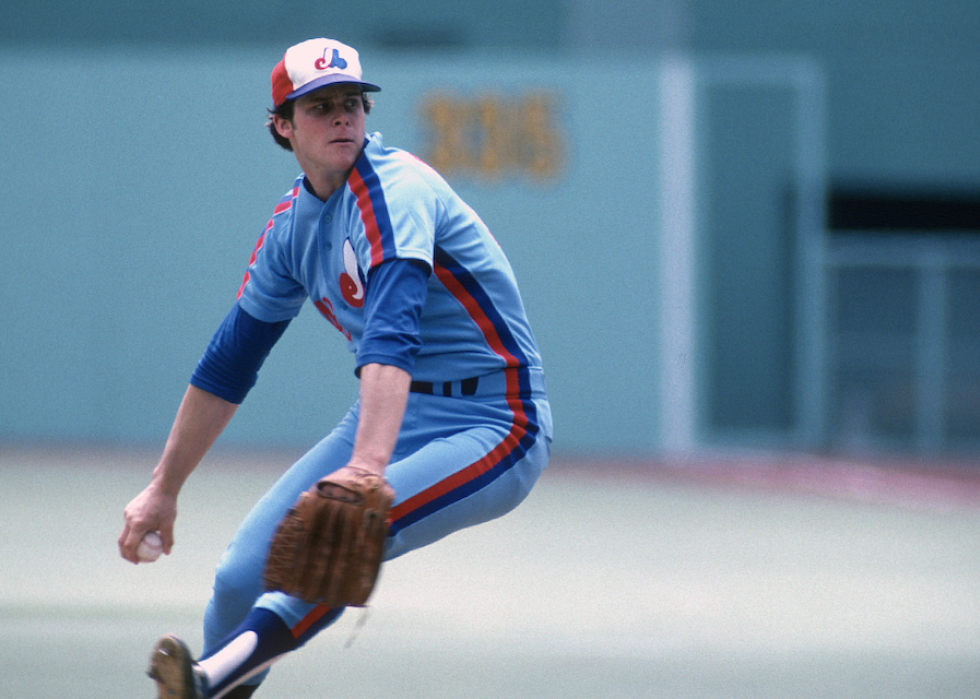
David Palmer, Montreal Expos
- Date: April 21, 1984
- Game result: Montreal Expos 4, St. Louis Cardinals 0 (5 innings)
- Innings pitched: 5
- Strikeouts: 2
- Reason for incomplete game: Called due to rain
The last shortened perfect game called off by an umpire was pitched by David Palmer, who was making his second start following Tommy John surgery.
Palmer struck out two batters, retired 11 off grounders, and one each via a fly ball and a grounder, according to the Associated Press report on the game. The game, a second part of a doubleheader, was eventually stopped shortly after midnight in the sixth inning after an 80-minute rain delay.
“It’s hard to believe,” Palmer said afterward, per the Montreal Gazette. “The good Lord is looking after me. I hit a home run in my first start (in Atlanta that season) and now a rain-shortened perfect game. I’ll take it.”
Digging into the record books, Palmer later had a one-hit complete game as a member of the Philadelphia Phillies in a 2-0 win over St. Louis in 1988. But he never again came close to a perfect game or a no-hitter.
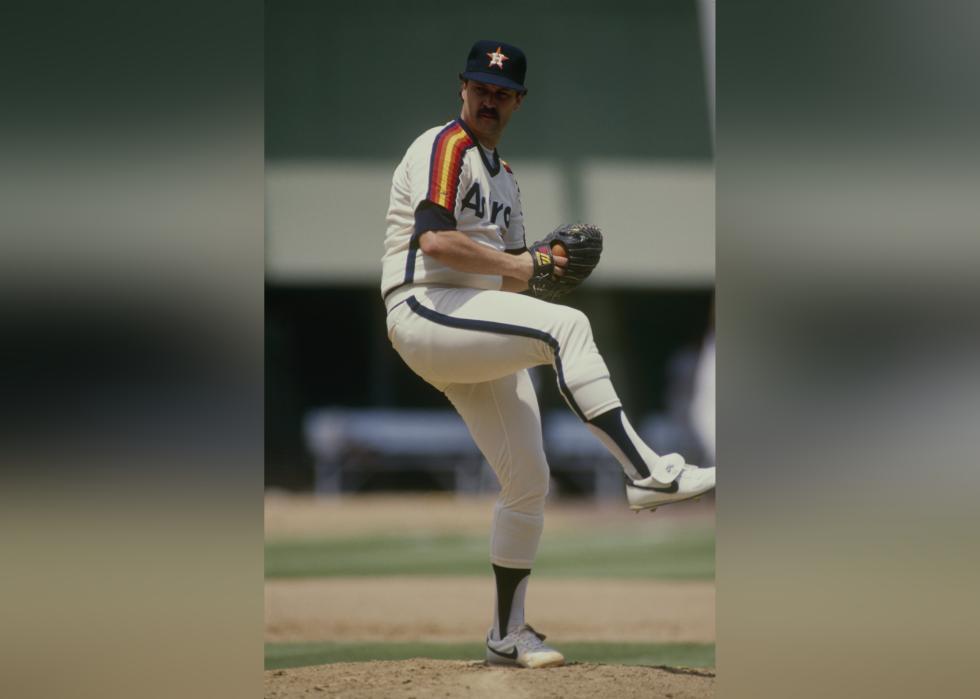
Bob Knepper, Houston Astros
- Date: Oct. 5, 1986
- Game result: Houston Astros 4, Atlanta Braves 1
- Innings pitched: 5
- Strikeouts: 1
- Reason for incomplete game: Pitcher pulled
Based on research, Bob Knepper was the first pitcher ever pulled deep into a perfect game bid. Houston scheduled Knepper to only go five innings, because he was slated to start the third game of the National League championship series one week later, according to the AP report of the game. "I expected to come out regardless of what happened," Knepper said. "That was the game plan."
The left-hander only struck out one batter—Dale Murphy to end the fourth inning—the lowest whiff count among the 11 pitchers with incomplete perfect games. Houston's bullpen of three pitchers following Knepper kept Atlanta from reaching base through the eighth. The Astros' bid for a team perfect game—a feat never achieved in the majors—ended in the ninth, after Dave Smith gave up a one-out single.
Knepper later pitched eight perfect innings in 1988, also against Atlanta. However, a lead-off single in the second ruined the possibility of a no-hitter or a perfect game.
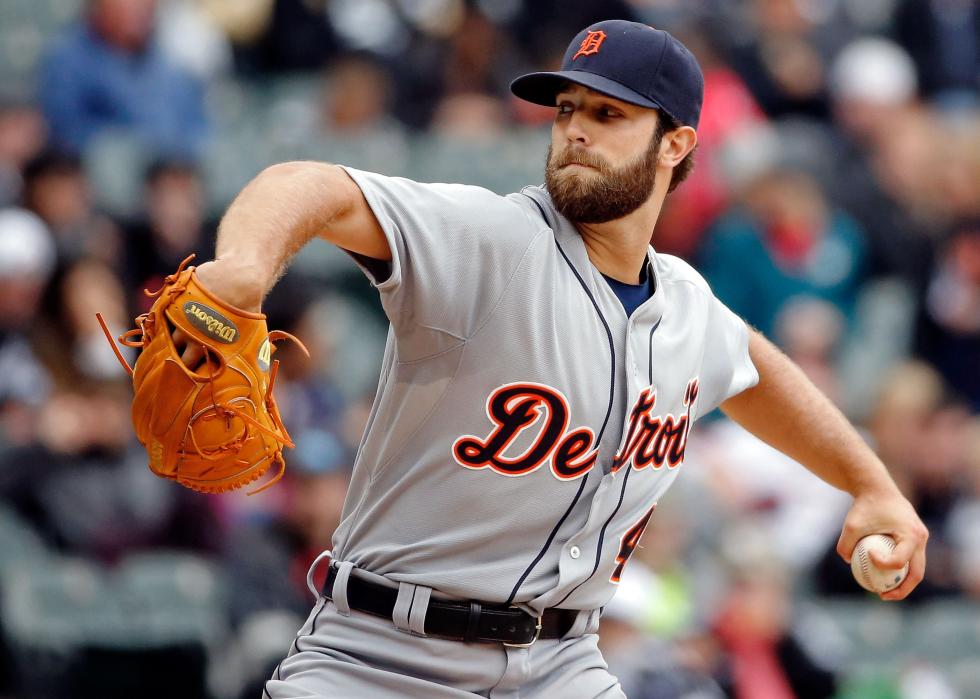
Daniel Norris, Detroit Tigers
- Date: Sept. 22, 2015
- Game result: Detroit Tigers 2, Chicago White Sox 1
- Innings pitched: 5
- Strikeouts: 4
- Reason for incomplete game: Pitcher pulled
In his second start after returning from an injury that left him on the disabled list, Daniel Norris was perfect through five innings. The post-DL recovery process put left-handed Norris on a 65-pitch limit, and he exited the game after 63 pitches.
“I was kind of, I guess, prepared for it. As far as when he told me I’m coming out, there’s no argument there. It is what it is,” Norris said, per the Morning Sun. “It’s not like I wish I would have given up a hit or anything, though. It’s just encouraging for me. I want to finish the season strong.”
The potential for a joint perfect game died when Ian Krol hit White Sox leadoff man Adam Eaton two pitches into the seventh. Detroit’s combined no-hitter attempt then ended when Tyler Saladino connected for a one-out triple in the ninth. Despite the hiccups, the Tigers held on for a 2-1 victory.
Currently playing for the Chicago Cubs as of 2022, Norris has yet to brush close to perfection again.
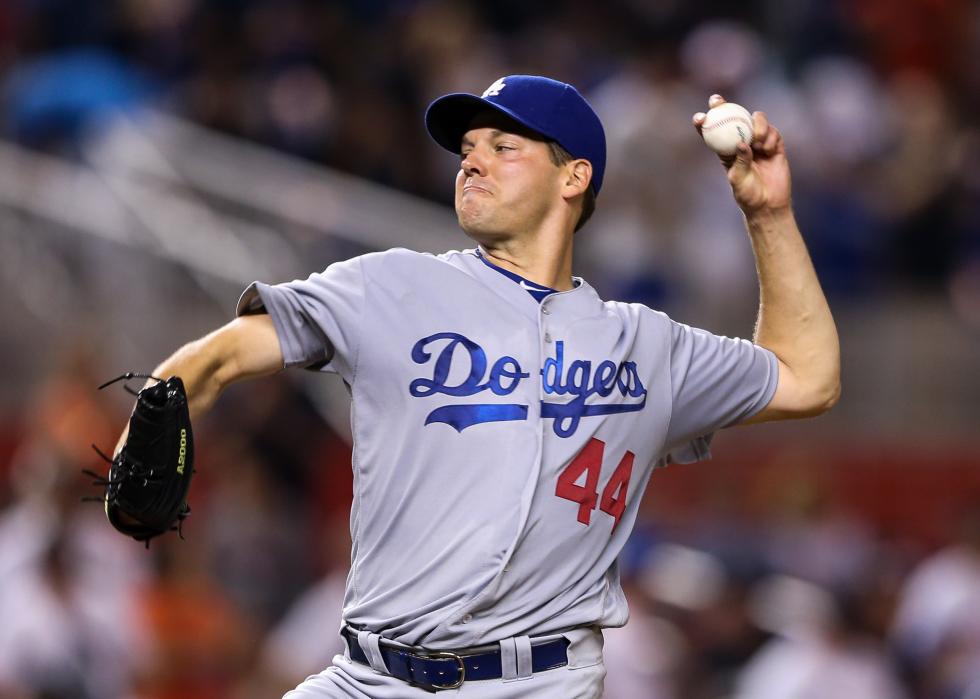
Rich Hill, Los Angeles Dodgers
- Date: Sept. 10, 2016
- Game result: Los Angeles Dodgers 5, Miami Marlins 0
- Innings pitched: 7
- Strikeouts: 9
- Reason for incomplete game: Pitcher pulled
Rich Hill’s seven innings of perfection combined for the longest incomplete effort since Karger’s seven-inning game nearly 110 years prior. A lingering blister limited Hill to 89 pitches and so Dodgers manager Dave Roberts made the call to lift the left-hander after the seventh inning.
“Obviously, I didn’t want to come out of the game,” Hill said, per the AP. “But I think there is a bigger picture here and we all know what it is. Dave was in a very difficult position. You look at it and move on. That’s all you can do.”
Hill’s replacement, Joe Blanton, gave up a two-out single in the eighth to end the joint perfect game bid. Roberts said it was “probably the worst” he had ever felt following a win.
Hill threw a one-hit, nine-inning game against Pittsburgh one season later. However, that one hit was brutal—it came via a walk-off home run in the 10th inning by Josh Harrison that gave the Pirates a 1-0 win. Hill had previously been perfect for the first eight innings before an error in the ninth let a baserunner on.
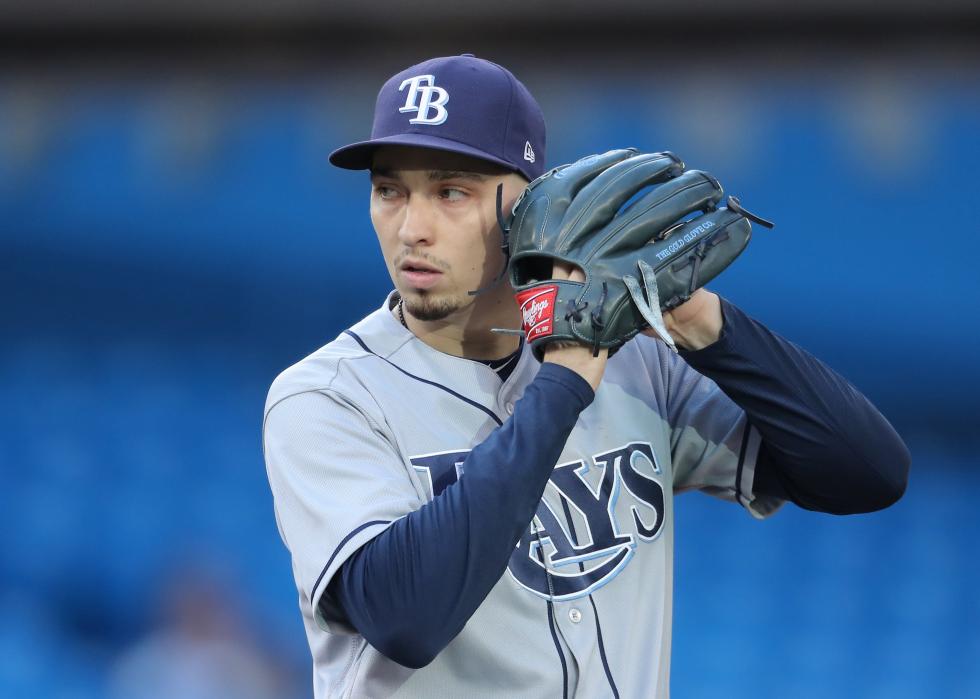
Blake Snell, Tampa Bay Rays
- Date: Aug. 10, 2018
- Game result: Tampa Bay Rays 7, Toronto Blue Jays 0
- Innings pitched: 5
- Strikeouts: 6
- Reason for incomplete game: Pitcher pulled
Like with many other modern-day efforts on this list, Snell left the game due to a pitch count. And similar to Norris’ game, a return from the disabled list triggered this pitch count.
Snell, who struck out at least one batter in each of his five innings, tossed 47 pitches against Toronto before exiting. It was Rays pitching coach Kyle Snyder who made the decision to pull Snell, not manager Kevin Cash, according to the Tampa Bay Times.
“I’m not going to argue. Kyle wants what’s best for my career, future wise and everything,” Snell said. “I felt great, but I haven’t gone five innings in a month. To be able to do that and be as consistent as I wanted to be with my pitches was something I was very excited about.”
Snell’s replacement, Jake Faria, immediately gave up the joint perfect game attempt when Toronto’s Luke Maile led off the sixth inning with a single. Snell would go on to win the 2018 American League Cy Young Award.
Snell later pitched seven innings of no-hit ball in 2021 for San Diego against Arizona. However, he was tapped out once more—again due to workload management—as Snell reached 107 pitches over those seven innings.
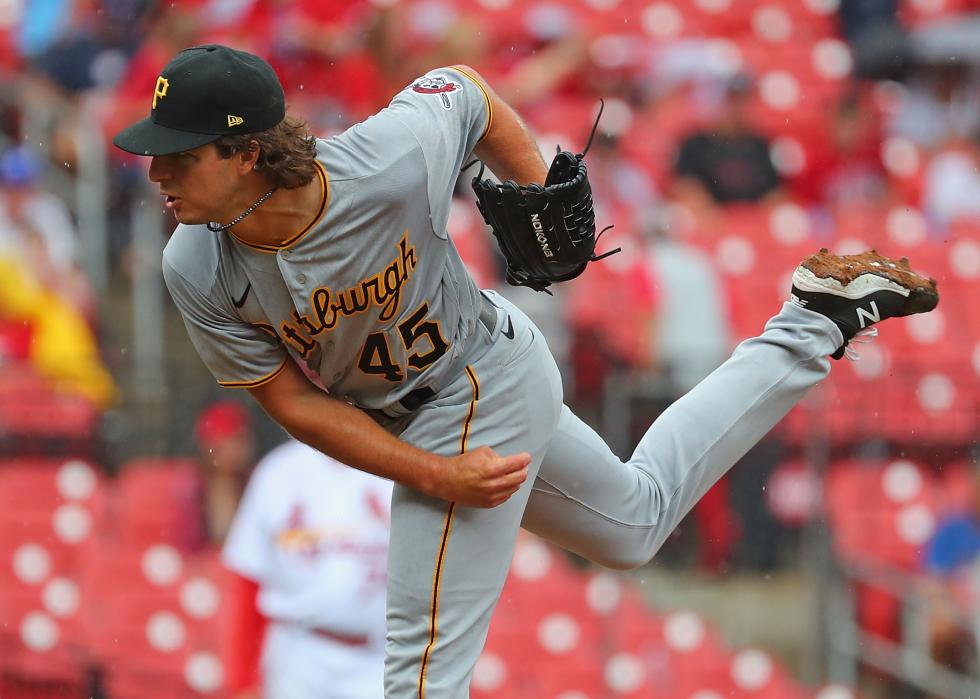
Max Kranick, Pittsburgh Pirates
- Date: June 27, 2021
- Game result: Pittsburgh Pirates 7, St. Louis Cardinals 2
- Innings pitched: 5
- Strikeouts: 3
- Reason for incomplete game: Pitcher pulled
Max Kranick’s incomplete perfect game came during his major league debut. Had he managed to go all nine innings without a hit, he would’ve been the fourth player to start a career with a no-hitter. However, rainy weather had other plans for Kranick that day.
The game saw a 64-minute rain delay following the fifth inning and the Pirates chose to pull Kranick once it restarted. “Crazy feeling, incredible feeling,” Kranick said, per the AP. “I’ll remember this day forever.”
Pittsburgh reliever Duane Underwood Jr. kept the perfect game going until he gave up a double to lead off the seventh inning. Kranick’s line for the day included 50 pitches, with 36 going for strikes.
Kranick’s perfect major league start ended 13 days and one out later, when he gave up a first-inning, one-out single against the New York Mets. Since that second outing, Kranick has made seven starts, all with four or more hits allowed.
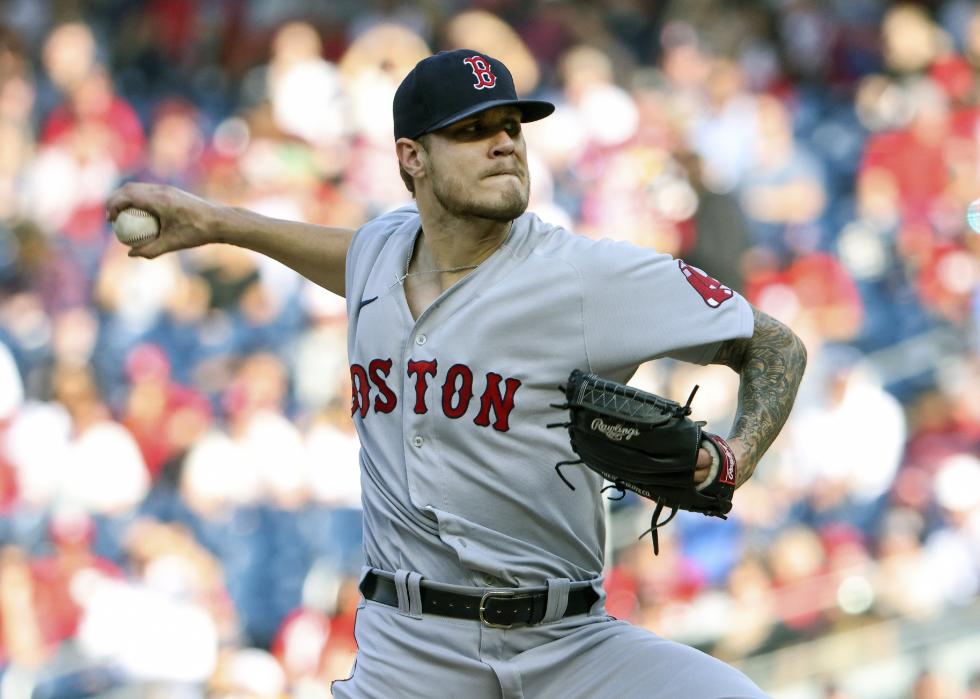
Tanner Houck, Boston Red Sox
- Date: Oct. 2, 2021
- Game result: Boston Red Sox 5, Washington Nationals 3
- Innings pitched: 5
- Strikeouts: 8
- Reason for incomplete game: Pitcher pulled
Tanner Houck recorded 2021’s second incomplete perfect game. Houck reached 53 pitches and struck out eight of the 15 batters he faced. However, Red Sox manager Alex Cora decided to pull the plug to limit Houck’s workload before the playoffs.
“As manager you want to manage with your heart, but you[’ve] got to be smart too,” Cora said, per NESN. “Today, we feel like that was good enough for us to give us a win and I’m glad that we ended up winning the game.”
Boston’s bid for a combined perfect game ended two outs after Houck left—his replacement, Garrett Richards, allowed a single in the sixth.
While Houck didn’t complete a perfect game, the game against the Nationals happened in the middle of something special. Houck followed up his incomplete perfect game with a perfect seventh inning in relief against the New York Yankees during the American League Wild Card Game. Then he held the Tampa Bay Rays from reaching base for 4 2/3 innings in a Division Series game. Because he also picked up an out in the game before his incomplete perfect game, Houck retired 30 batters in a row during that stretch of games.
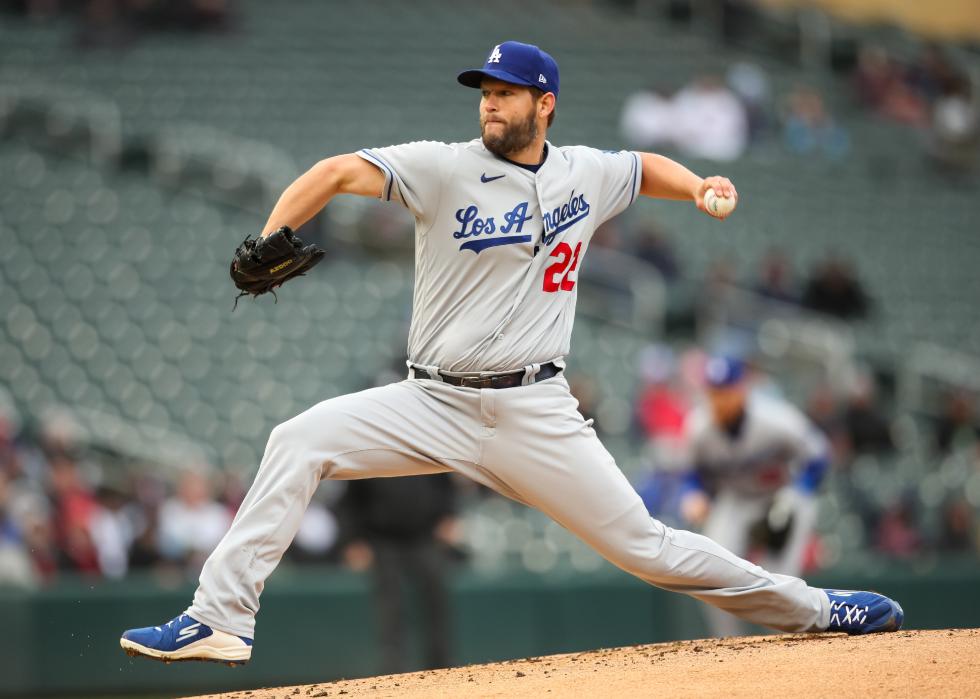
Clayton Kershaw, Los Angeles Dodgers
- Date: April 13, 2022
- Game result: Los Angeles Dodgers 7, Minnesota Twins 0
- Innings pitched: 7
- Strikeouts: 13
- Reason for incomplete game: Pitcher pulled
The most recent incomplete perfect game was arguably the most masterful—and recorded by the most accomplished pitcher on this list. Clayton Kershaw fanned 13 of 21 batters, the highest ever total in the 11 incomplete perfect games Stacker counted. Kershaw is also the only pitcher on this list to have won multiple Cy Young Awards.
With such a high-profile pitcher on the mound and the fact that baseball’s perfect game drought is nearing 10 years, it’s no surprise that this performance was one of the most noteworthy incomplete perfect games in history. Kershaw’s seven-inning appearance lasted 80 pitches. Dave Roberts, who also hooked Hill in 2016, was again in charge of the Dodgers.
Kershaw told reporters after the game that Roberts made “the right decision” and his early exit should be blamed on the MLB lockout. Following the game, Sports Illustrated tallied that no pitcher had thrown more than 96 pitches in a game yet, because managers were pacing pitchers after the late start to the season.
The Dodgers lost their attempt for a team-perfect game after Kershaw’s replacement, Alex Vesia, allowed a one-out single in the eighth inning.
Kershaw previously threw a no-hitter in 2014 against the Colorado Rockies, but he has never had a full perfect game.



